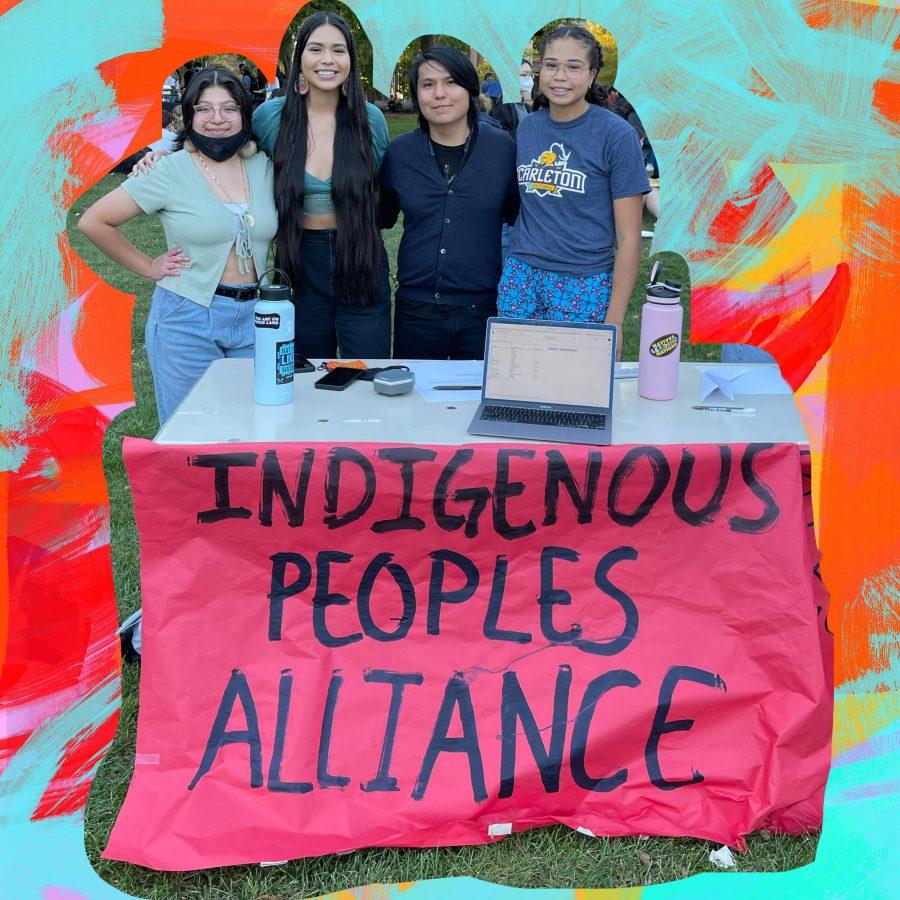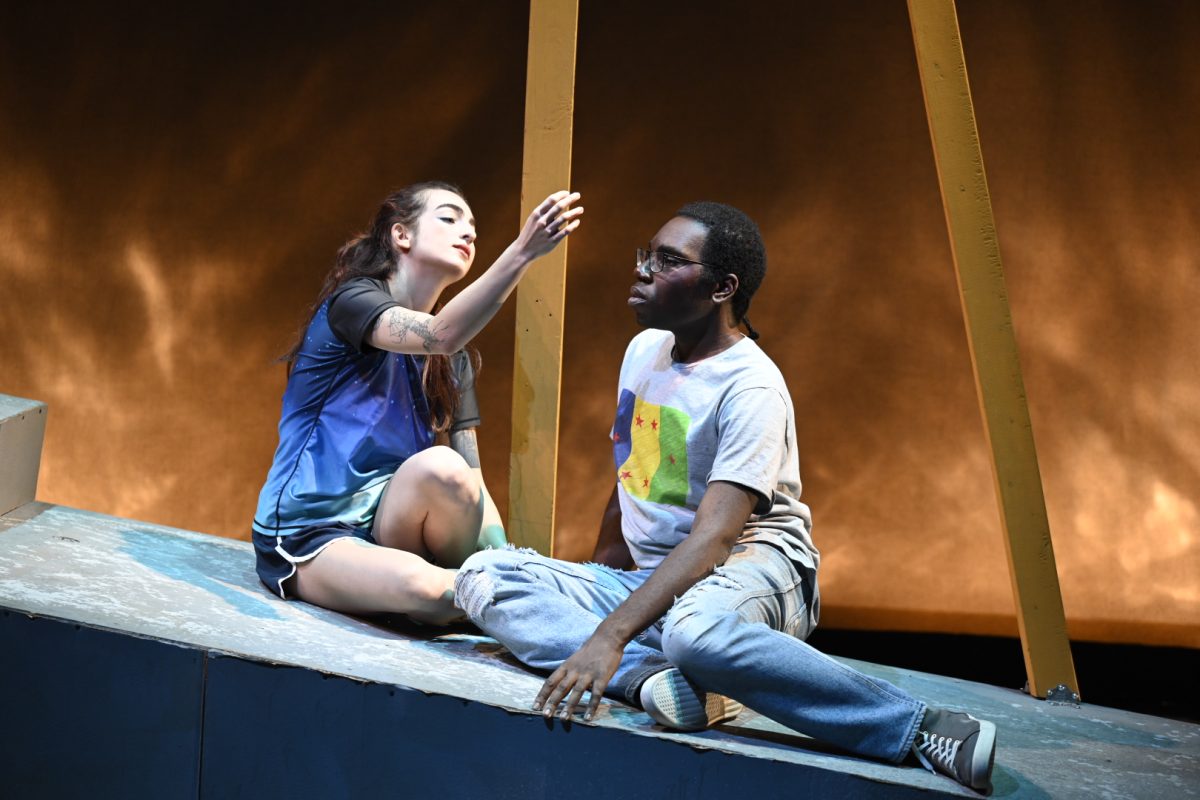When Imani Kindness-Coleman ’22, a member of the Apsàalooke Nation, arrived at Carleton, there was no support or community for her as an Indigenous student. “I didn’t notice anything, and nobody reached out,” she said.
“I can say the same thing: we came in and there wasn’t anything there,” added Zaya Vijil ’23. Vijil is Diné and a member of the Navajo nation.
According to Zia NoiseCat ’23, who is Secwepemc/St’at’imc and enrolled in the Canim Lake Band, information about Indigenous students at Carleton was hard to access.
“When you do ask for information, you’re given the run-around. You have to go through various offices, where someone says, ‘I do know someone who is Native, but I can’t tell you who it is for privacy reasons,’” she said. “It was very difficult to find each other.”
Kindness-Coleman, Vijil and NoiseCat did end up finding each other—and Ana Pina Marcelino ’22, who is Nahua from the San Miguel Tecuiciapan pueblo—through Professor Meredith McCoy, who teaches in the American studies and history departments with a focus on Indigenous history, activism and education.
After McCoy connected the group, Vijil had the initial idea to create a formal student organization and credits Marcelino with taking charge of the process.
“We were starting from scratch,” said Marcelino. “There were organizations before us, but they had dissolved.”
The team reached out to alumni and CSA members to help. Because CSA requires student organization to have five members, IPA needed special permission for a charter, which they received last April.
“A lot of the things we want to do require funds,” said Marcelino. “And now, we’re able to do a lot of the things we want to do.”
For the IPA Board, there is a balance between pushing an activism message to the broader student body, fostering an internal community and having a life outside of the group.
One recent focus was Orange Shirt Day—a day intended to raise awareness about the violent legacy of residential schools, which forcibly removed Indigenous children from their homes and subjected them to abuse. IPA communicated across multiple campus channels asking students to wear orange last Thursday, September 30, in honor of these survivors and victims. Their message included a link for students to further educate themselves.
“We don’t want IPA to turn into us educating people—thats not something we’re looking to do,” said Marcelino. “Most of our activism wants to focus on awareness, without us taking the burden of educating them.”
Since Orange Shirt Day, IPA has received requests from multiple campus organizations and offices looking to connect, but also asking the team to do more work.
“They mean well, but it has gotten super hectic, especially because we’re a small group,” said NoiseCat.
That’s why their original plan for Indigenous Peoples’ Day, which is Monday, October 11, was to do nothing.
“Just to be with ourselves and be with each other during our first Indigenous Peoples’ Day as a chartered group,” explained NoiseCat.
But then IPA learned that members of the Prairie Island Indian Community will be visiting Carleton on Indigenous Peoples’ Day, and they will be able to meet privately with Prairie Island’s President Buck. The members have been busy planning for the event since.
IPA will host a get-together for Indigenous students on Sunday, October 10.
IPA also welcomes allies to engage with the following events and to connect on social media.
Sept. 9 to Oct. 17: ‘Why Treaties Matter’ exhibit in the Weitz Center
Oct. 8: Convocation with Anton Treuer, professor of Objibwe language
Oct. 11: Indigenous Peoples’ Day programming
Instagram: @indigenous_peoples_carleton













